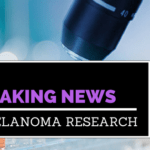Nivolumab at Micro Doses Works Better than Chemotherapy Against Relapsed Cancer

In Mumbai, India, and other parts of the world, immunotherapy is not always available for every patient who needs it. Among 15,674 total patients with cancer needing immunotherapy, only 444 received it. In this example, accessibility of immunotherapy was 2.83% due to unavailability and/or unaffordability of the drugs.
A Phase III randomized controlled clinical trial conducted in Mumbai tested whether ultra-low doses of immunotherapy might work for patients with cancer needing treatment for their worsening disease. The data showed that ultra-low doses prolonged overall survival, gave a better quality of life, and led to fewer side effects among cancers that were resistant to prior therapy.
Although the study did not focus on melanoma, it included many types of solid tumors like colorectal cancer, esophageal cancer, head and neck cancer, lung cancer, and urothelial cancer to achieve an enrollment of 500 patients. Among the study participants, most were male (81.6%), some smoked (35.9%), and had a median monthly family income of 4,000 Indian Rupees, which is equivalent to $46.59 U.S. dollars as of June 2025.
Patients with cancer were treated with one prior line of chemotherapy, which varied depending on the type of cancer, and then given an ultra-low dose of nivolumab (20 mg intravenously every 2 weeks) upon disease progression. A traditional dose of nivolumab given in the U.S. is 240 mg given every 2 weeks. The 2025 prices are $7,787 U.S. dollars for 240 mg and $1,297 U.S. dollars for 40 mg, as per Briston Myers Squibb Pricing Information.
Overall survival after one year of treatment was 27.28% among patients treated with immunotherapy and 16.88% among patients treated with chemotherapy. The two-year overall survival was 11.19% with immunotherapy treatment and 6.55% with chemotherapy.
Although the median progression-free survival for the different treatments was similar at ~2 months, the median overall survival was distinct. Participants treated with nivolumab had a median overall survival of 5.88 months compared to 4.70 months for those treated with chemotherapy. The rates of disease stabilization measured were similar.
The results are paradigm-changing for locations that lack availability of the quantities of the drugs usually required or in settings where immunotherapy is unaffordable. Although the patients had relapsed cancers, researchers are suggesting that the ultra-low doses be studied in curative settings given upfront for treatment of the disease.
References:
Noronha, Vanita. Oral presentation, “Phase III randomized study comparing ultra-low dose immunotherapy to standard cytotoxic chemotherapy for solid tumors in second line and beyond setting (DELII: Development of Low dose Immunotherapy in India),” at the annual meeting of the American Society of Clinical Oncology (ASCO) in Chicago given on June 2, 2025.
Bristol Myers Squibb. Pricing Information. Available in January 2025. Accessed in June 2025. https://www.bmspricinginformation.com/assets/buildeasy/bmspricinginformation/opdivo/en/resources/pdf/OPDIVO_Pricing_Info_Sheet.pdf
Recent Posts

Merlin CP-GEP Becomes the First and Only Gene Expression Profile Test Recommended by NCCN®

Best-in-Class Real-World Data Support Early Amtagvi® Treatment in Advanced Melanoma

Moderna, Merck’s Skin Cancer Vaccine Shows Sustained Benefit in Five-Year Follow-Up

Reflecting on Melanoma Treatment in 2025 and Looking to the Future in 2026


